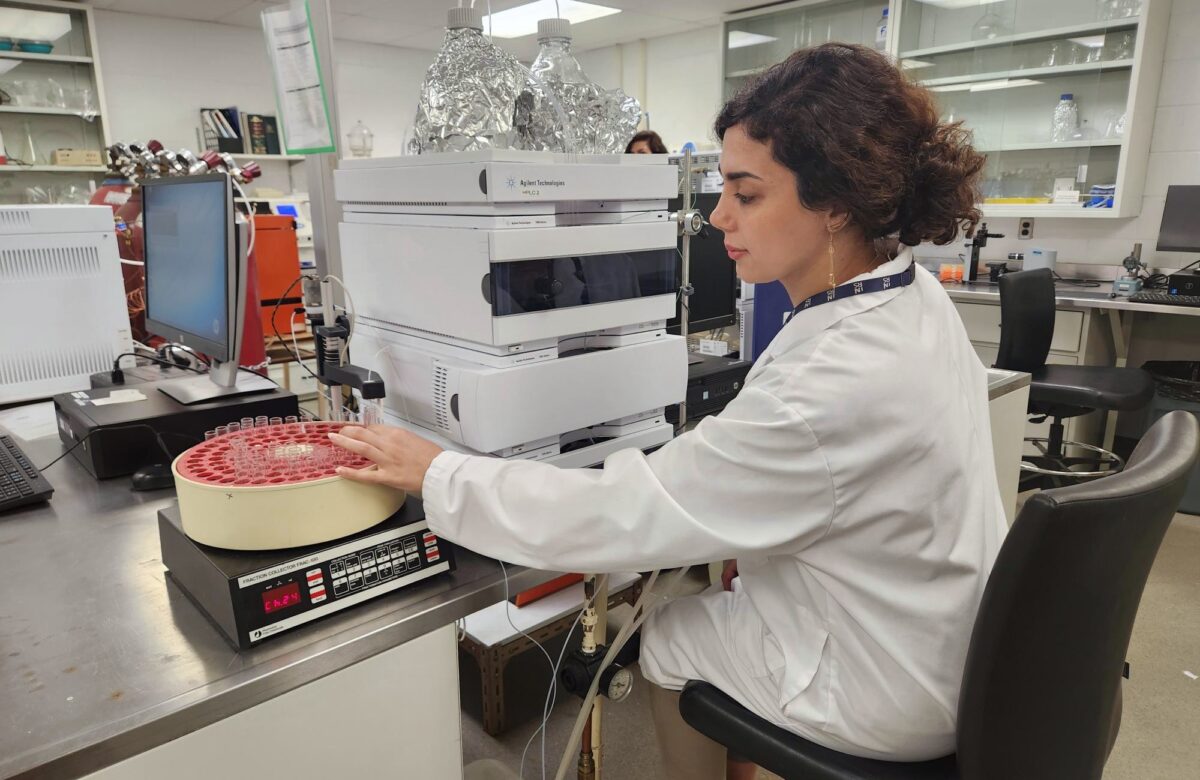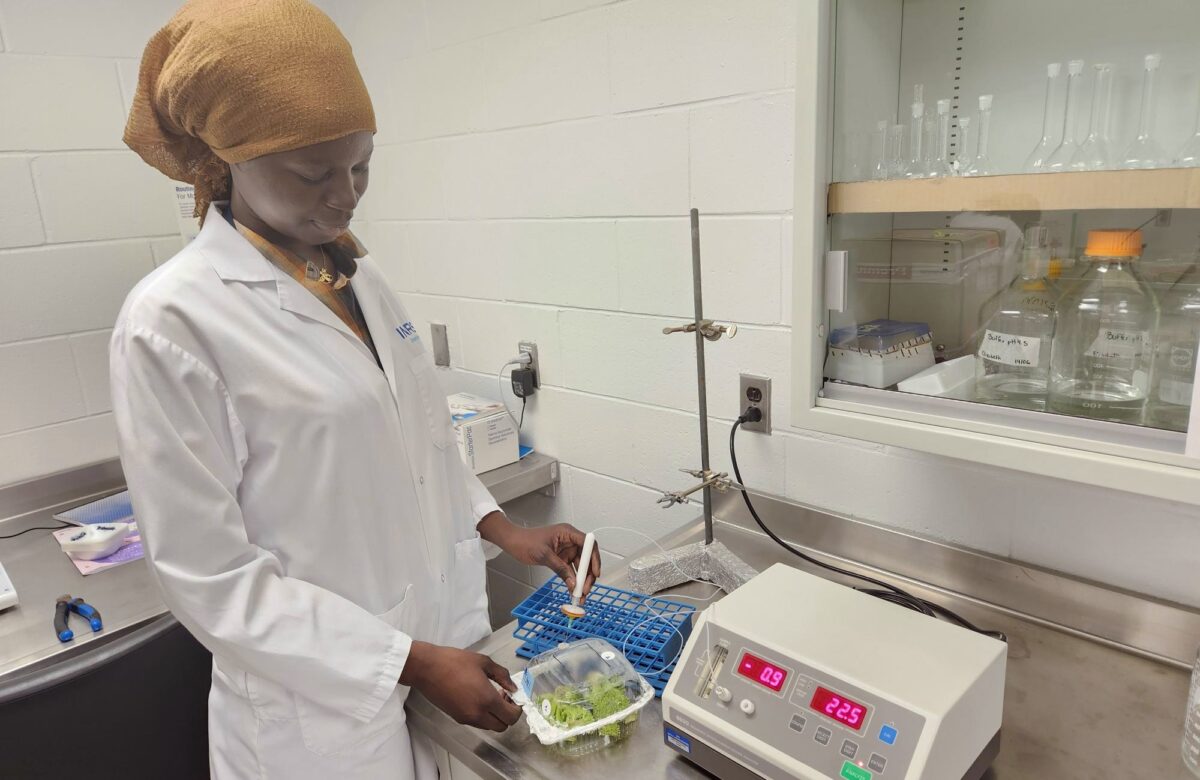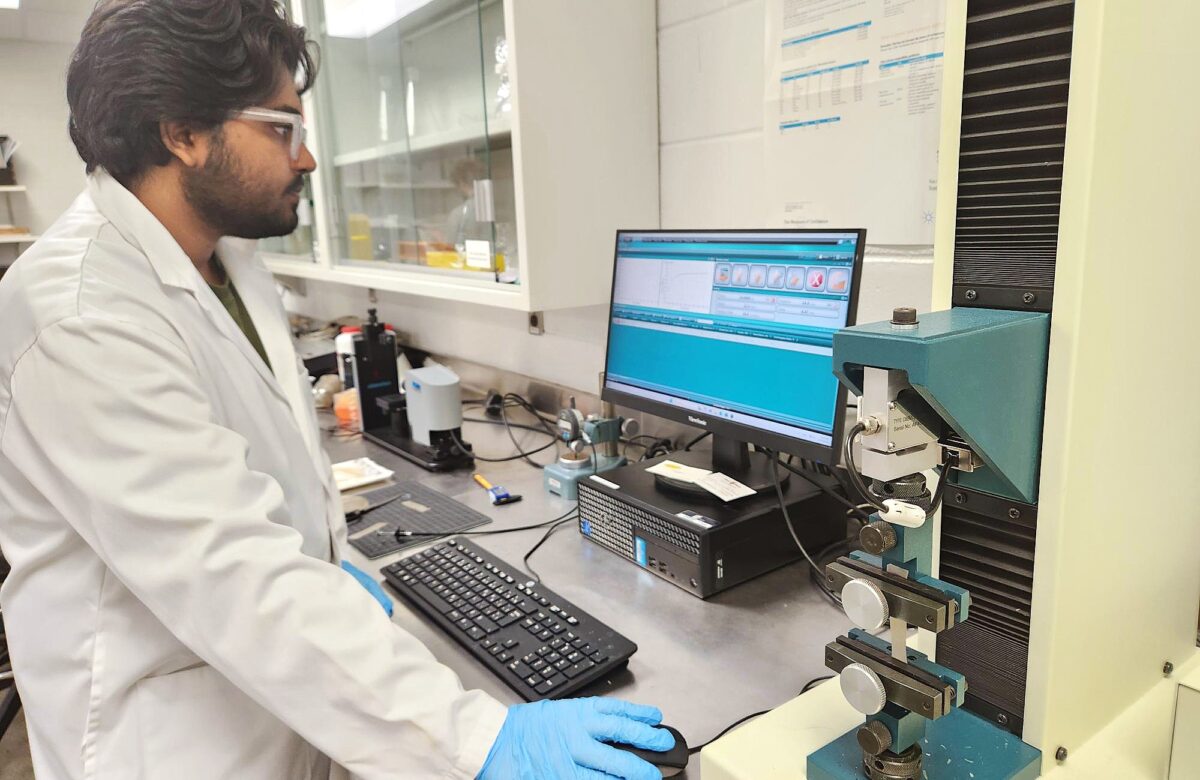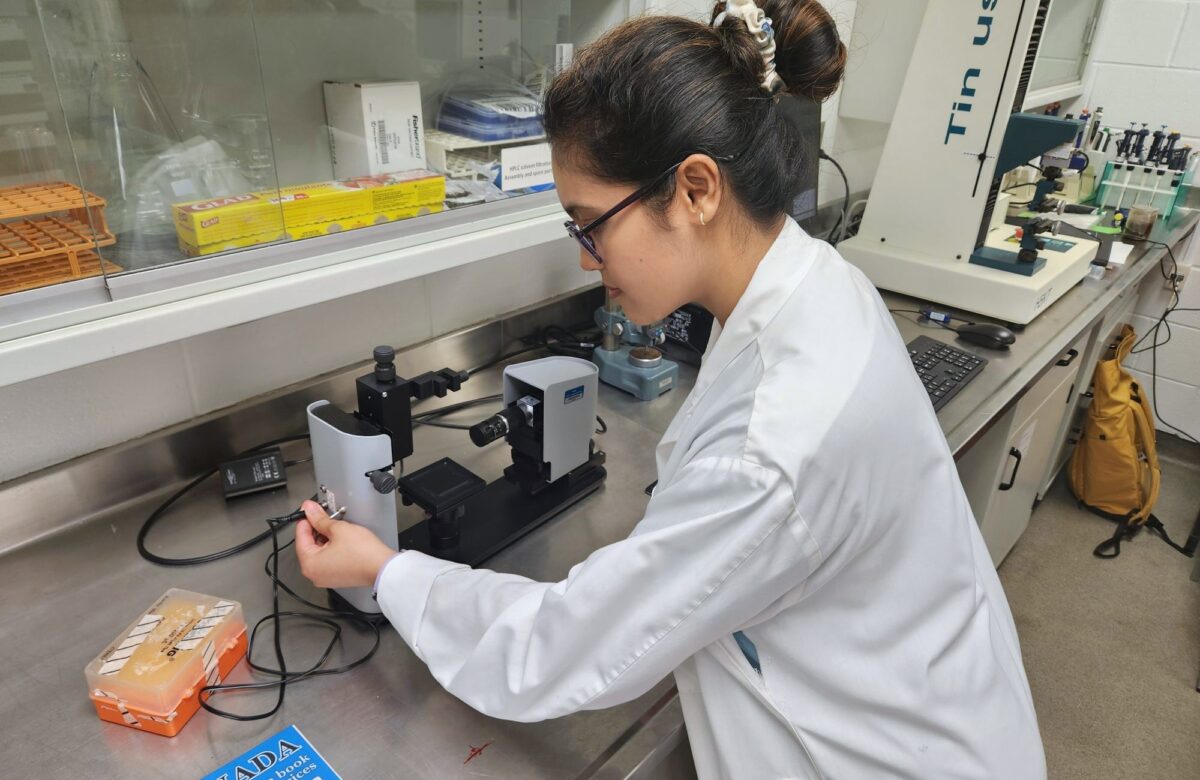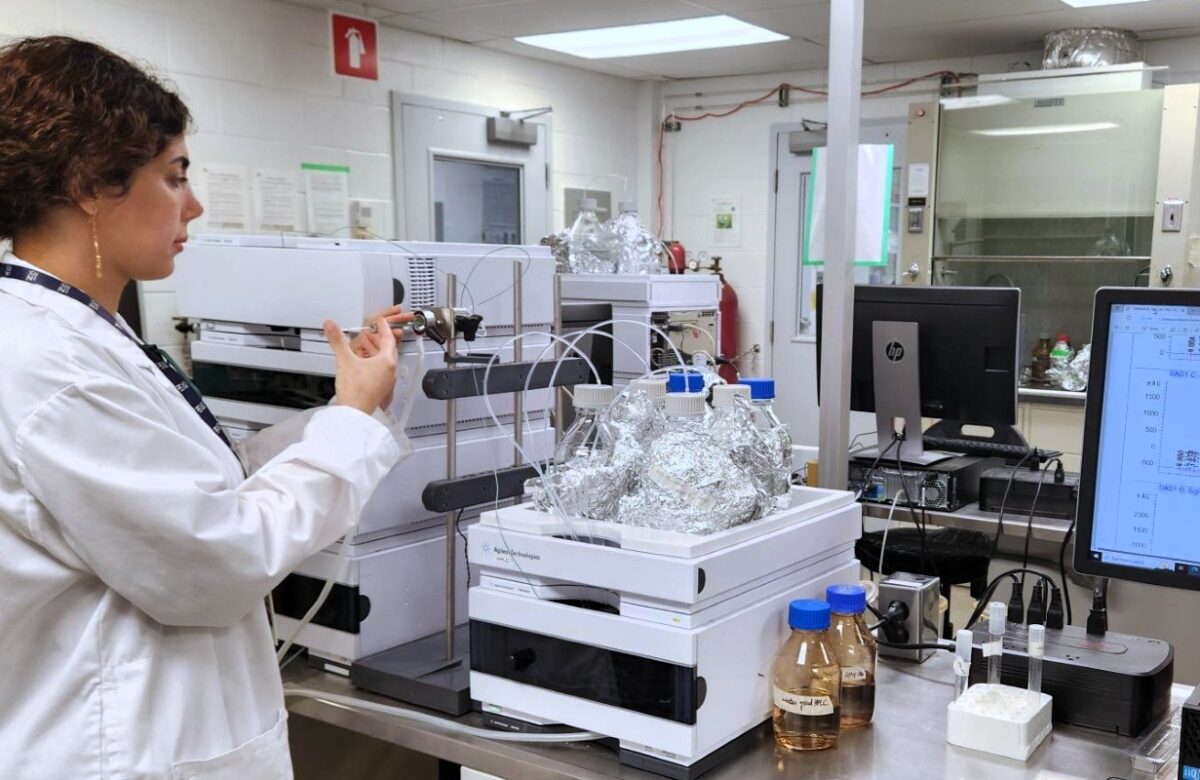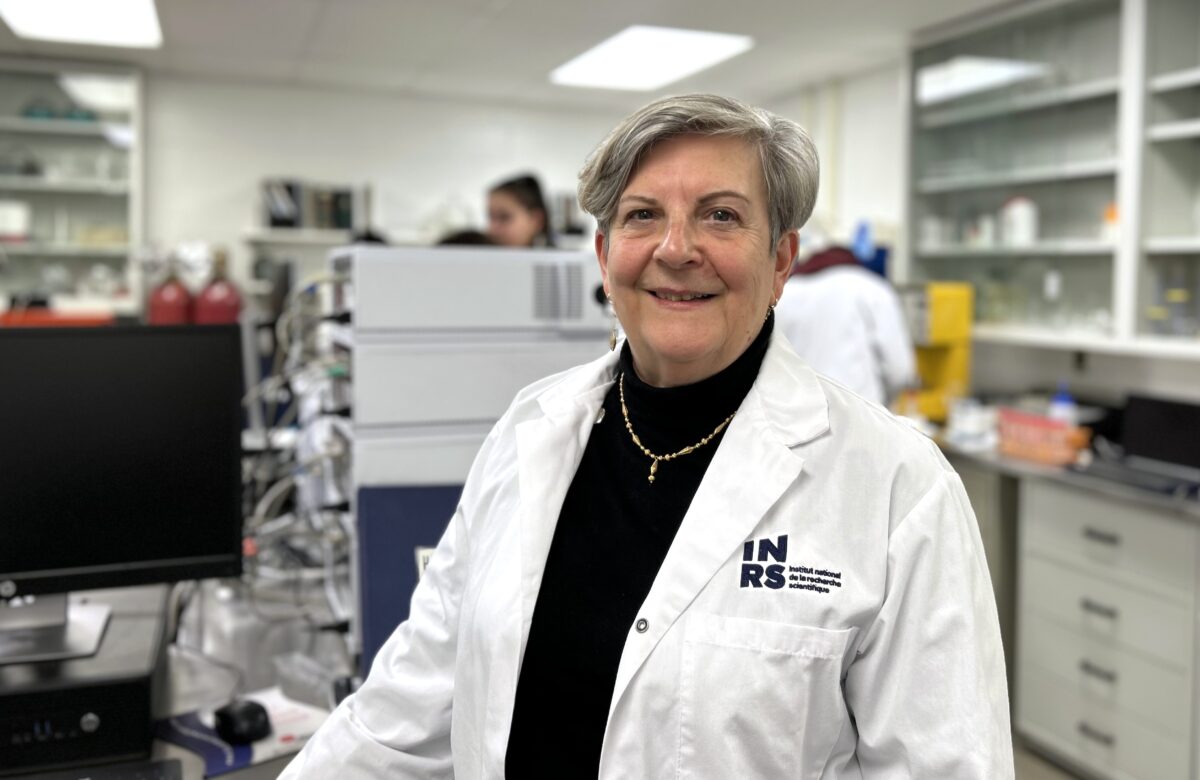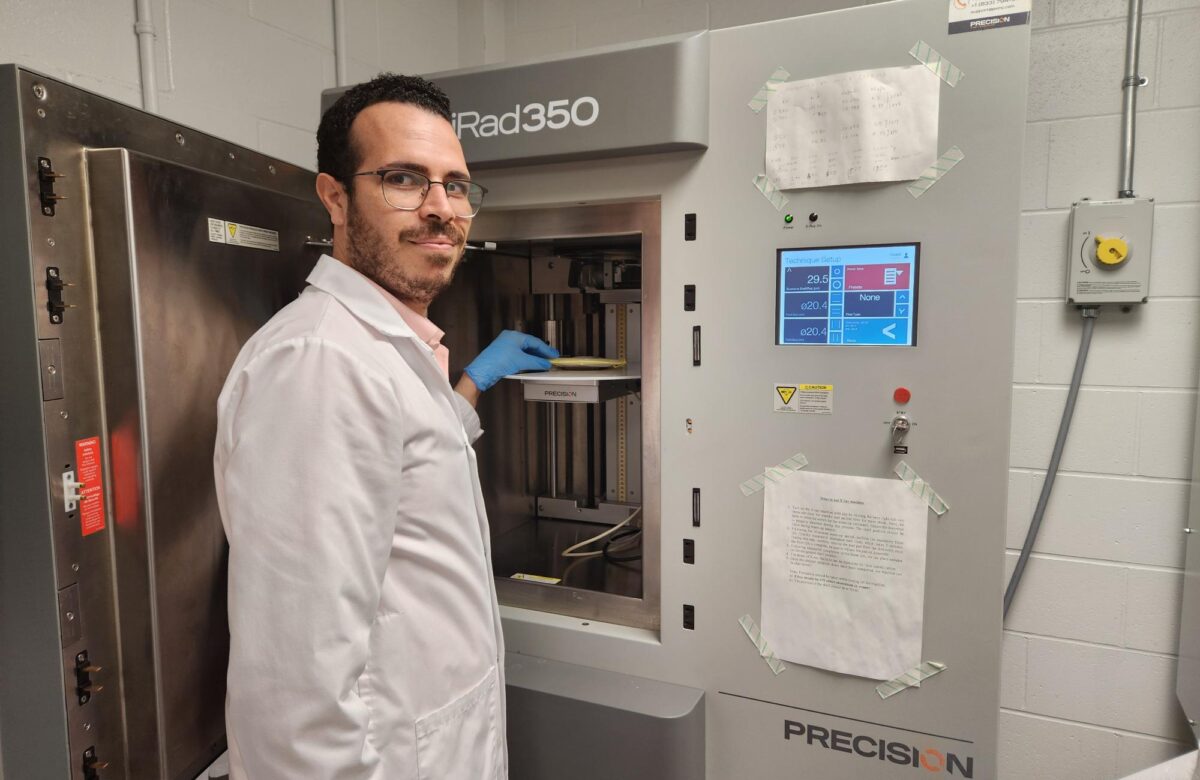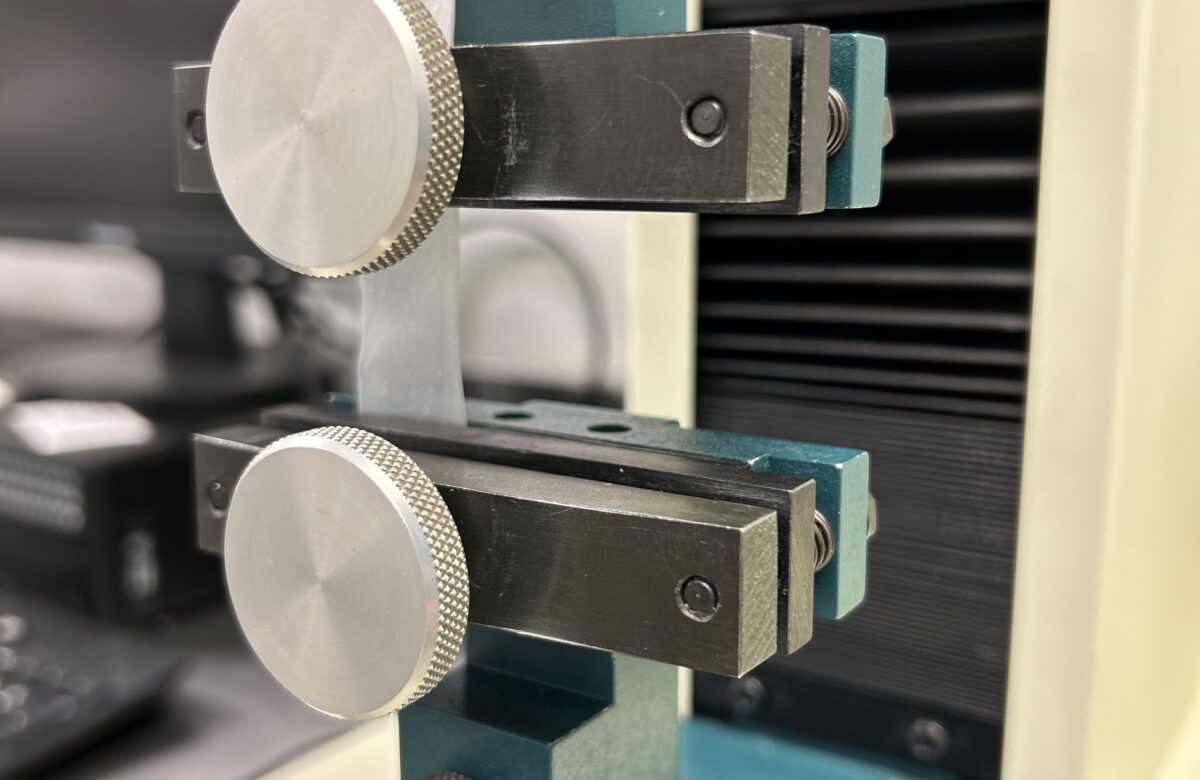The Canadian Irradiation Centre (CIC) is a centre of excellence in irradiation dedicated to the development of irradiation treatment technologies and their applications to ensure food safety and security, reduce plastic pollution, recover industrial waste, and reduce food loss.
The INRS CIC has contributed to more than 34 international projects in collaboration with 11 countries.
Researchers at the Canadian Irradiation Centre (CIC) develop innovative irradiation technologies to reduce food waste, ensure food safety, and reduce plastic waste. They use innovative, non-thermal (irradiation) processes to create reinforced, bio-based, biodegradable, and bioactive packaging films through the recovery of industrial waste including food by-products and forest residues. They apply chemistry, microbiology, and virology to food science, environmental protection, and other areas.
The Research Laboratories in Sciences, Applied to Food (LABO-RESALA), headed by Professor Monique Lacroix, are part of the CIC. LABO-RESALA boasts recognized expertise in food safety and security, industrial waste recovery, the development of bio-based, biodegradable, and bioactive bio-packaging, and the use of innovative technologies, including irradiation. Its mission is to develop, demonstrate, and promote irradiation treatment and its applications through research and training activities.
Since its inauguration in 1987, the CIC has worked closely with the International Atomic Energy Agency (IAEA). The IAEA’s “designated collaboration centre” status, recently granted to the CIC, is awarded to institutions with exceptional expertise in fostering international collaboration, strengthening capacities and knowledge, and promoting sustainable energy development. The CIC is now the second collaborating centre in Canada and the sixth in the Americas. This positions Quebec as a leader in the development of sustainable technologies, food safety research, waste recovery, and environmental protection.
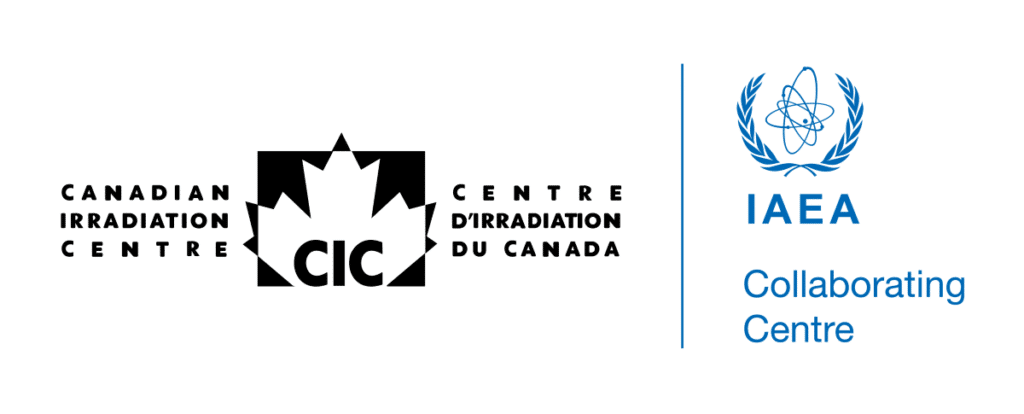
Facilities and equipment
The Laboratories include:
- 11,000 square feet of laboratory space
- A cold room
- Workstations for chemistry, biochemistry, microbiology, and virology (Level 2), irradiation, dosimetry, sensory evaluation, physicochemical analysis, and extrusion
- Equipment for the development of nanoemulsions, nanomaterials, biocomposites, bio-based polymers, and the incubation of cells, microorganisms, and insects
Applications
- Food microbiology, chemistry, physico-chemical and sensory evaluation
- Biosources, biodegradable bioactive polymers
- Biocomposites, nanomaterials, antimicrobial nano compounds
- Valorisation of bioactive compounds from food waste
- Nutrition and functional components
Funding
- Natural Sciences and Engineering Research Council of Canada (NSERC)
- Ministère de l’Agriculture, des Pêcheries et de l’Alimentation (MAPAQ)
- Ministère de l’Économie, de l’Innovation et de l’Énergie (MEIE)
- Armand-Frappier Foundation (FAF)
- Consortium de recherche et innovations en bioprocédés industriels au Québec (CRIBIQ)
- Ministère de l’Éducation (MEQ)
Contacts
Monique Lacroix
Director of the CIC
Professor in Sciences, Applied to Food
monique.lacroix@inrs.ca
Canadian Irradiation Centre (CIC)
Institut national de la recherche scientifique
Armand-Frappier Santé Biotechnologie Research Centre
531 des Prairies Blvd.
Laval, Quebec H7V 1B7
Canada

